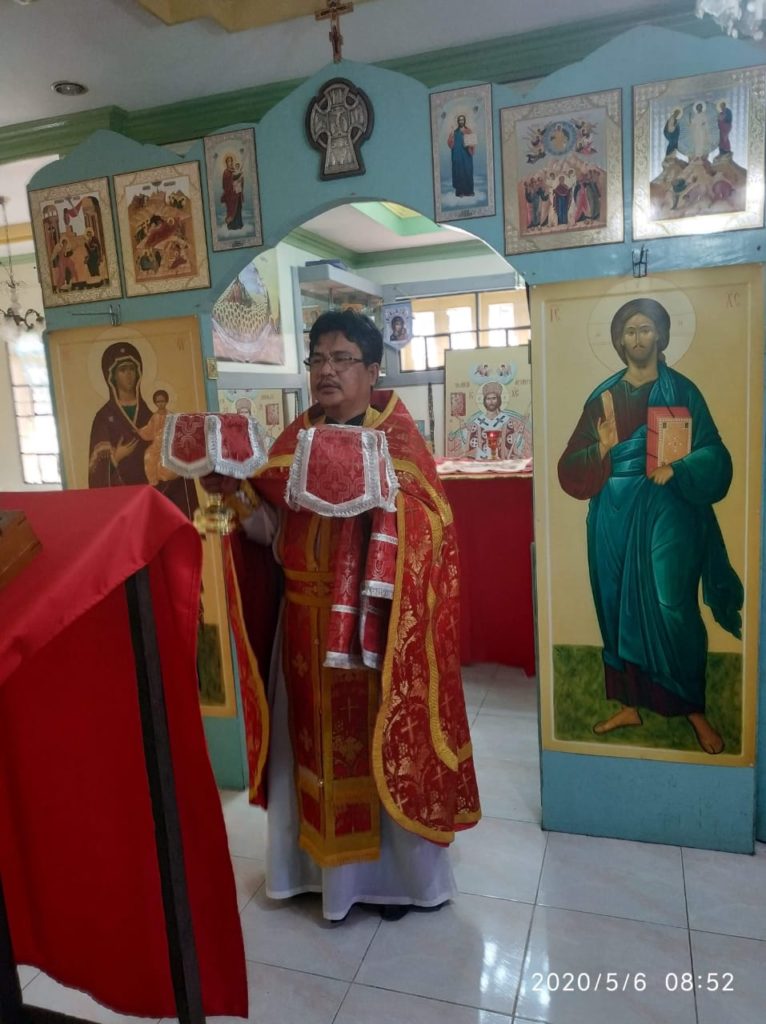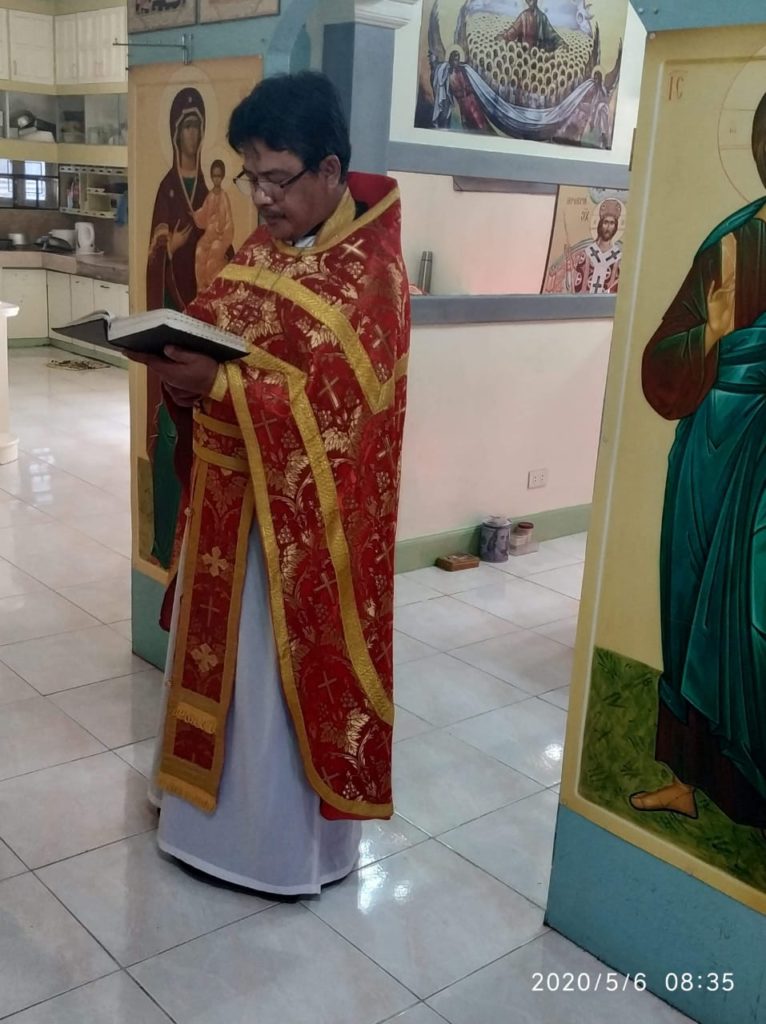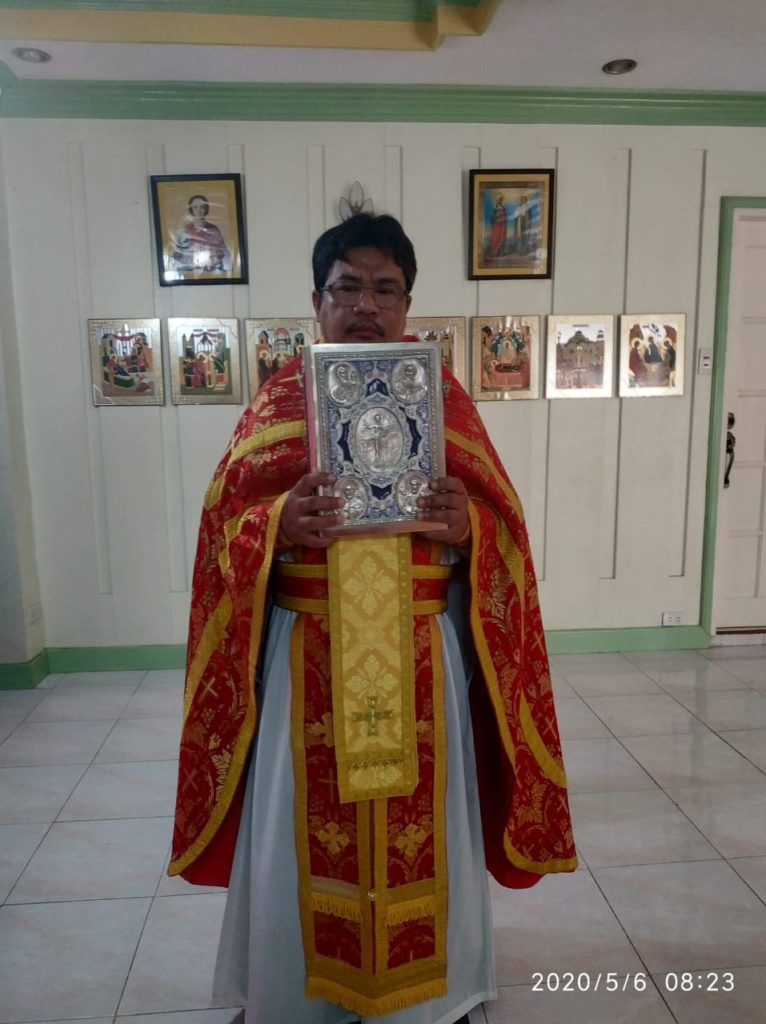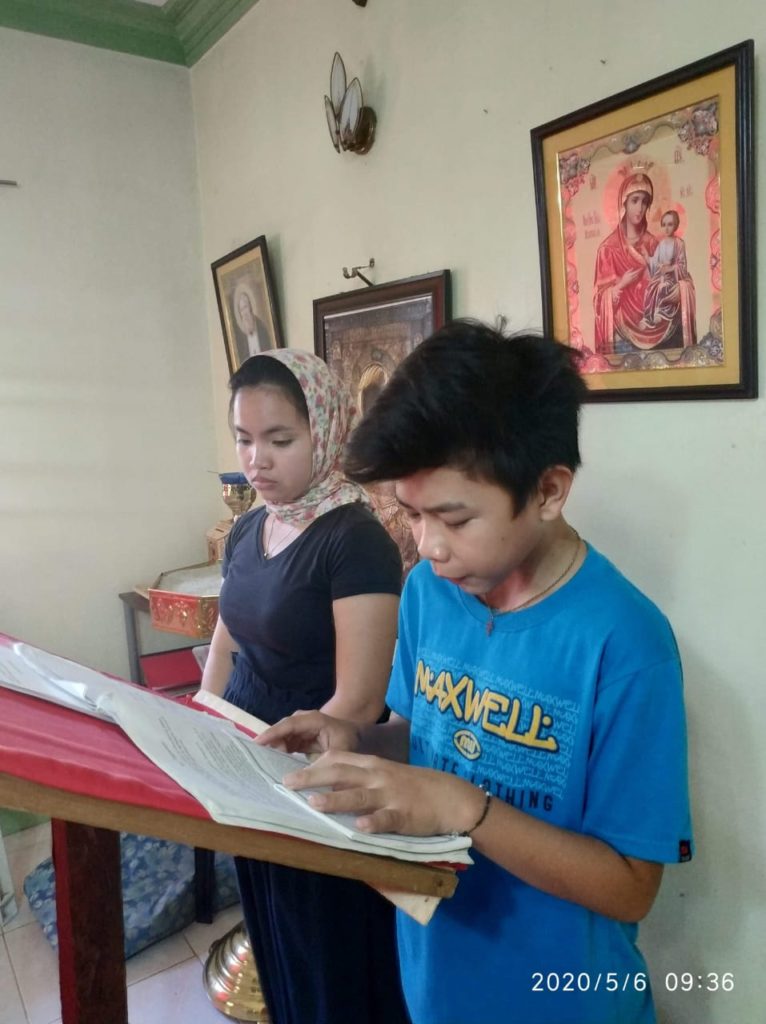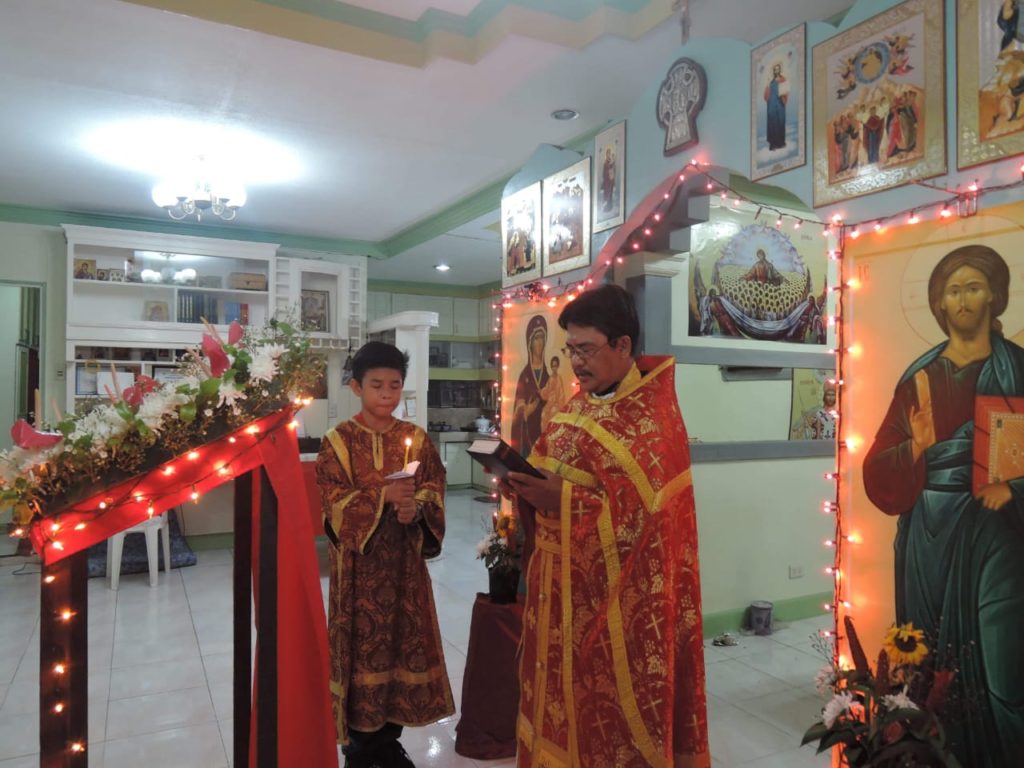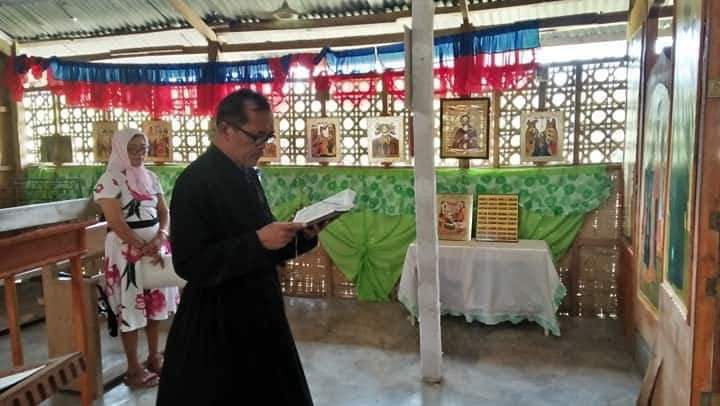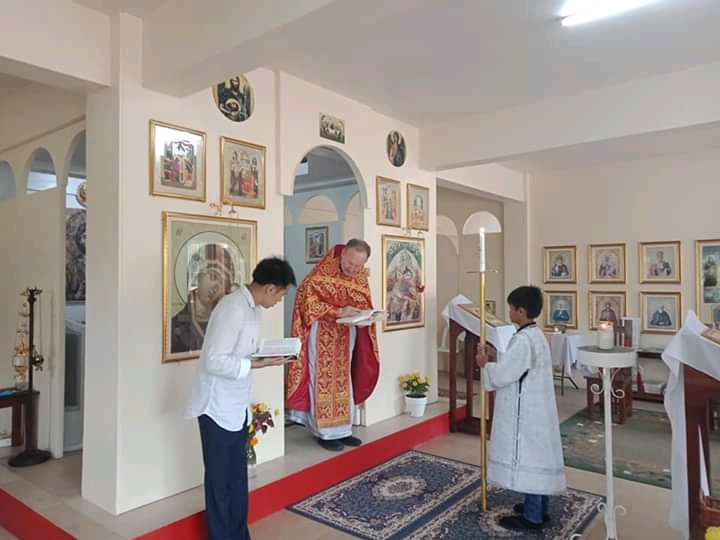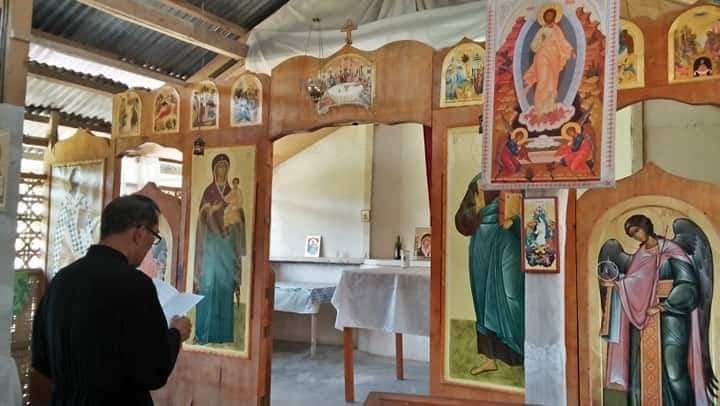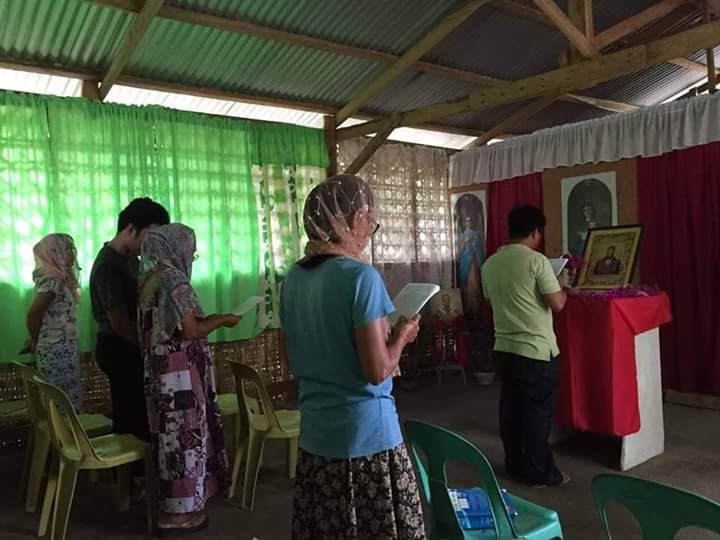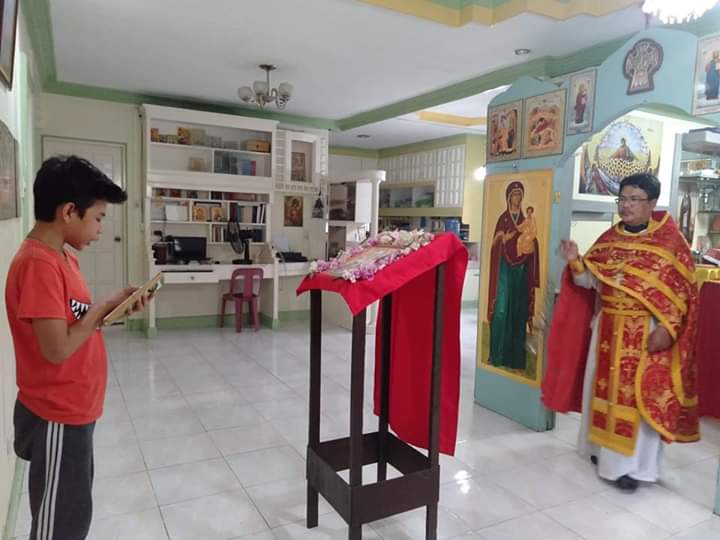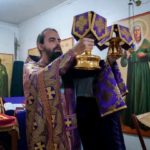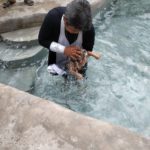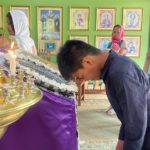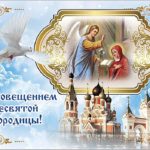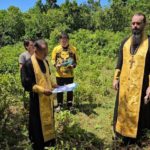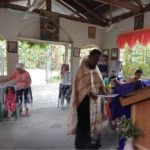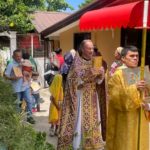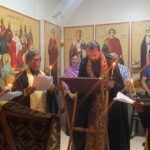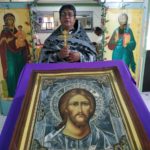Dear Brothers and Sisters!
Christ is Risen!
By God’s mercy, we have already reached the 3-rd Sunday of the Paschal feast that the Church has wisely dedicated to the memory of the feat performed by the myrrh-bearing women.
The myrrh-bearing women and the apostles are a kind of two ways of the faith. Resolute and ardent Peter, who is ready to follow the Saviour even to death, before his enlightenment by the Holy Spirit, turned out to be not so courageous and firm in the faith when a real danger to his life arose. And other disciples, too, afraid of their congeners, left the Lord at the most critical moment.
But the meek women who accompanied Christ in His earthly journeys stood silently at the Cross sharing in their hearts the crucifixion of the Lord Jesus. They did not try to prove anything to anybody, nor did they demand for themselves the honour of sitting on the right or left hand of the Saviour in His Kingdom. They simply served Christ with meekness, patience and profound humbleness. And it might by for this reason that He vouchsafed them the honour to become apostles for the apostles themselves, to bring the good news to the Saviour’s closest disciples. A dangerous illness has befallen our people. It has already taken many lives, among them those of clergy of our Church. Dozens of thousands of people are suffering in hospitals. Even more people have to state at home in self-isolation, to endure restrictions in communications with their relatives and friends and sometime even to face an acute material need.
My dear ones, I am well aware of how hard it is for you today. I am commiserating with all of you. Believe me, you are not alone, the Patriarch is with you. All my thoughts and prayers are for you. Every day I pray to God for His mercy, that this ordeal may go past our people as soon as possible and that we may again unite with you in the Sacrament of the Holy Eucharist praising the Lord with one mouth and one heart.
From the very beginning of this situation it was clear to me that we have come to face a dangerous and insidious disease. The clergy and our elderly parishioners were to find themselves in the high-risk zone. And in the recent days, we have already lost several respected clergy and many faithful of the Church. As the Primate, I have always been aware of my responsibility for the clergy and the people.
It was with great grief that I had to make the decision to appeal to you not to come to church for a while. Without exaggeration it was the most difficult words in my life. I have never had to say anything like this. But it is the burden of responsibility that the Primate of a Church bears by assuming not only the honors of the patriarchal rank but also the entire mental anguish of the episcopate, clergy and flock. And I feel this pain in my heart every time when I think that millions of Orthodox people are thirsting for the Holy Mysteries of Christ but cannot cross the threshold of their dear church, when I think about the clergy who celebrate behind the closed doors and are deprived of material support today.
However, just as faith without love brings no benefit to a person, so Christian compassion should have visible fruits. And for this reason I have turned to well-off people who are benevolent to the Church with a humble appeal to give material support to our clergy. And thank the Lord, my entreaties have been heard. Of course, it may not change the situation radically but every one of us should do all that is possible to help our neighbor. I am sincerely grateful to those who, despite all the economic complexities that our country and the whole world are going through, have shown the truly Christian willingness to share what they have for the sake of the neighbors. May the All-Generous Lord reward you for you good deeds.
In spite of the fact that I, just as many of you, have to stay in a closed space, I keep receiving testimonies about dramatic cases taking place in various cities and villages because of the spread of the pernicious infection. And I try as much as I can to correct the efforts of our volunteers in their really selfless service. And to all the volunteers headed by Bishop Panteleimon, with whom I keep in contact every day and from whom I receive the necessary information, I express special gratitude, for it is directly to you that the words of Christ the Saviour may be applied: For I was hungry and you gave me something to eat, I was thirsty and you gave me something to drink, I was a stranger and you invited me in, I needed clothes and you clothed me, I was sick and you looked after me, I was in prison and you came to visit me Mt. 25:35-36).
I would like to express special appreciation to doctors as well. Medical workers today are in the front line of the struggle with the disease, showing true heroism and faithfulness to their vocation. All this evokes the most sincere admiration.
Despite the complexity of the situation, we in all circumstances are called to preserve mental peace, calm and good sense, not to burn with indignation and hate, nor to engage ourselves in an endless search for enemies and, the less so, God forbid, to damn anybody, which in itself is unthinkable for a Christian. We remember what the Saviour said to us: By this everyone will know that you are my disciples, if you love one another (Jn.13:35).
God will not abandon His Church and His faithful servants. I only ask you: do not despair, do not loose heart, I pray for you all and mutually expect your ardent prayers for me as your Patriarch.
By the mercy of Risen Christ and His omnipotence we will defeat this assault, too, for with God all things are possible (Mt. 19:26), if only we could be staunch in our present trials and faithful in our trust in the Lord just as the myrrh-bearing women believed in Him with patience and meekness, just as the secret disciples Joseph and Nicodemus stayed with Him. I appeal to you with the words of Holy Scriptures: Be on your guard; stand firm in the faith; be courageous; be strong (1 Cor. 16:13) and the Lord will preserve us by His grace. Amen.
+ KIRILL, PATRIARCH OF MOSCOW AND ALL RUSSIA

